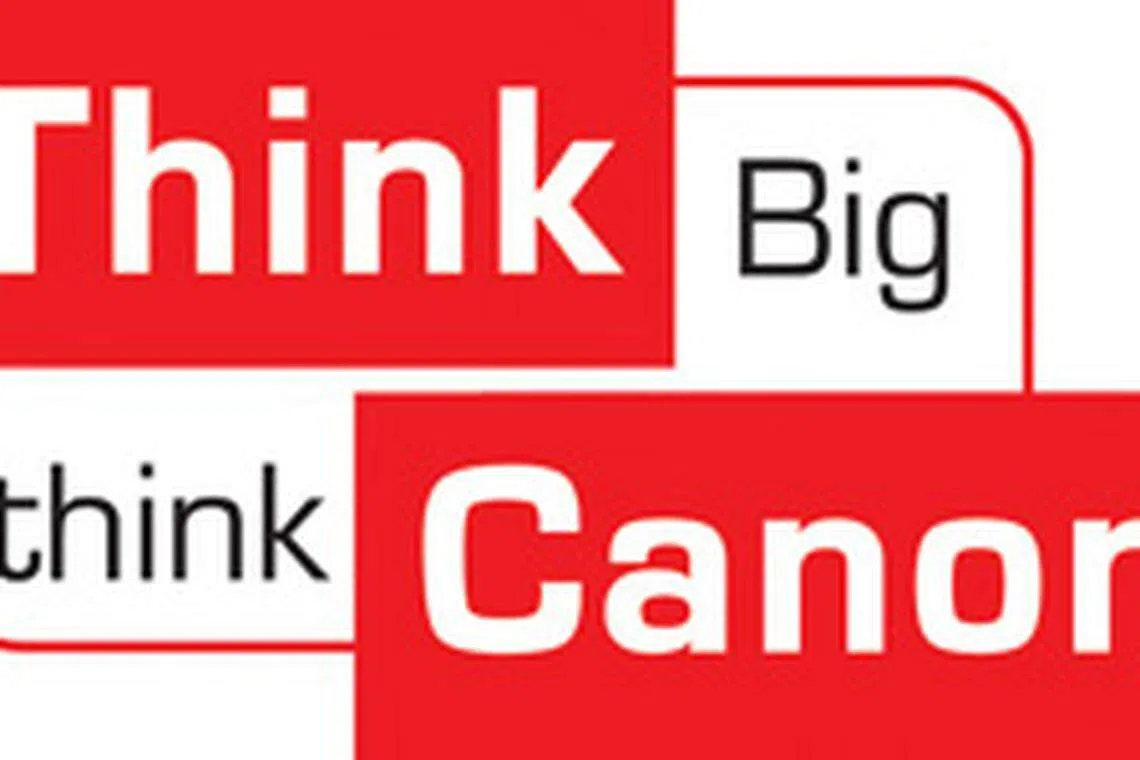Setting the gears of innovation in motion
Top notch speakers and innovation champions share their gems of knowledge at the third session of Think Big Leadership Business Series 2016
THE current uncertain business conditions have compelled companies to explore Change Management strategies urgently, hence the coming together of creative minds to discuss innovative insights amidst Singapore's dynamic and variable landscape.
How important is innovation to a company? Can we come up with ground-breaking technology in printing that allows for flawless, high-precision prints? Is it possible to leave behind a cleaner and greener manufacturing footprint?
These are some of the thought-provoking questions that were posed to an audience consisting of C-suite executives and entrepreneurs at the Think Big seminar which took place on August 26 this year. Held at the stately ballrooms in the Sheraton Towers Singapore Hotel, the seminar, entitled "How Innovation Can Make A Difference: Change Management In Tough Times", is the latest in the Think Big Leadership Business Series co-organised by The Business Times and Canon.
The esteemed speakers at the seminar were Professor Thomas Menkhoff, Mr Jacky Tai and Dr Loy Chong Jin, all of whom are innovation champions of their respective fields. The talks were followed by an interactive panel discussion which also included guest panellists Dr Kelly Anderson, Open Innovation Manager at Procter & Gamble, and Mr Alok Bharadwaj, the Senior Vice-President of Corporate Strategic Group, Canon Singapore.
Senior Vice President and Head of Singapore Group Operations at Canon, Mr Melvyn Ho, gave the opening address, sharing about the importance of sustainable innovation to the reinvention of Canon's business model. Using examples from within the company, he talked about the many benefits of creating an internal culture of innovation, which saw greater employee engagement and ownership for the firm. From the Canon story, Mr Ho demonstrated that the key to making a difference in the long run is forward thinking and continuity, in other words, thinking big.
"In today's global economy, competition is high. To thrive, innovation and change are the new rules of the game. You could even say innovation reflects how ready we are to deal with uncertainties in the future," says Mr Ho. "Sustainable Innovation reinvented the way we ran our business; we've been consistently among the top 5 US patent holders in the past 30 years. Some of these investments in intellectual capital don't necessarily reap immediate returns. But it is a continuous effort; and a lot of the forward thinking ideas have accelerated our business when opportunities were right, making a difference in the long run."
He continued, "The commitment to sustainability has also been a driving force for us to raise the bar in product innovation. And innovation doesn't always mean introducing radical new trends, as measurable impacts over time which consistently delivers value to stakeholders are just as crucial."
The new imageRUNNER ADVANCE colour multifunction device which we are launching today is a recent example I can share." Indeed, in our highly competitive business climate, every company seeks to emerge at the forefront of the rat race. This is where innovation - and its effective implementation - becomes the trump card, and a message commonly echoed by the speakers was that of the power and role of the individual to set the wheels of innovation in motion.
Unleashing The Power Of Innovation The seminar's first speaker was Professor Menkhoff, the Academic Director of the Master of Science in Innovation Programme at the Lee Kong Chian School of Business, Singapore Management University. In today's challenging economic landscape, Professor Menkhoff cautioned SMEs against finding shortcuts in a bid to sustain innovation efforts.
"Don't be complacent," he said. "Instead, nurture the right innovation-friendly values." Professor Menkhoff also shared the building blocks for cultivating innovation, where leaders can create a climate of innovation that is supportive of imaginative thinking at the workplace. While R&D and target-setting are important ingredients to innovation success, he stressed that more attention has to be given to the harder-to-measure, people-oriented determinants of innovation culture, namely values, behaviour and climate.
"Everyone would agree that innovation is important," he said, "but the key question is 'how good are you at implementing it?' '' In order for innovation to work, Professor Menkhoff believed that efforts should begin with leaders willing to take up the mantle of being an innovation champion, creating an engaging work environment and conveying the importance of innovation by making it a priority at the workplace.
Creating And Sustaining A Culture Of Innovation Mr Jacky Tai, Director of Brand Strategy at PwC Singapore, touched on some noteworthy points to keep in mind before embarking on an innovation venture. He began by debunking SMEs' longstanding mindset that innovation requires the element of invention.
The modern definition, Mr Tai continued, simply states that innovation is "the first attempt to carry out an idea and helps to derive valued creation in corporate culture". Mr Tai reinforced this reduction of the role of invention through the clever example of writing in space, where the ink in conventional pens is unable to flow in zero gravity conditions. So instead of spending much resources and time trying to invent a pen that could overcome the constraints of gravity, they used pencils.
In the midst of trying to outdo and differentiate their innovation from the competition, companies can sometimes lapse into what Mr Tai termed the "serial innovation syndrome", in which they keep churning up new products and technology without reviewing their innovation processes. He suggested focusing on making improvements and increasing the ways to use innovation to drive growth and cut costs.
Companies should also take time to highlight successful innovation results and boost employees' morale by rewarding them for their innovative efforts.
Open Innovation Through Win-Win Partnerships Last to take to the podium was the Research Associate Director at Johnson & Johnson, Dr Loy Chong Jin. He shared on how creating a collaborative business ecosystem using external innovation helped to accelerate new business opportunities and made Johnson & Johnson a preferred partner in the industry.
"It is all about relationship-building," said Dr Loy. Contrary to the commonly adopted notion of the survival of the fittest, J&J reached out to competing companies, on top of core supporter networks and partners, to come up with co-development programmes that benefit not just the companies involved, but the entire industry as well.
Rather than seeing IP as 'Intellectual Property' that is exclusive and narrow, Dr Loy sees IP becoming 'Innovation Partnerships', where new consumer solutions can be derived through co-creation and the mutual sharing of resources. This, he shared, was implemented through the setting up of J&J's global innovation centres in San Francisco, Boston, Shanghai and London, where innovation experts help to scout for technologies and identify opportunities.
Can Innovation Make A Real Difference? Pertinent questions were raised and discussed at the post-tea panel discussion moderated by Mr Jacky Tai. When asked for tips on increasing the effectiveness of innovation pursuits, Dr Kelly Anderson pointed out the importance of possessing a clear picture of the company's business credo, which many entrepreneurs tend to bypass.
Dr Loy concurred and said that innovation begins with making "small, incremental changes" to outdated innovation processes and practices, like for instance, using a spreadsheet differently to increase productivity.
Another highlight of the panel discussion was when a member of the audience asked for advice on becoming a successful innovation champion like the panelists themselves, to which Dr Loy advocated starting early and keeping things simple. "Innovation is only useful in the hands of someone who knows how to use it," he pointed out.
"Make your innovation intuitive and idiot-proof." Mr Alok Bharadwaj elaborated, saying, "Innovation is not a magic button. Rather, it is a scaffolding that builds layer upon layer".
While innovation can be a real game-changer in most industries, its implementation can sometimes threaten existing technologies and disrupt the status quo, making it an entrant of destructive potential. Some examples highlighted at the discussion include the cure for cancer, which could put a dampener on the lucrative cancer treatment industry; and digital media that might one day render traditional print irrelevant.
Mr Jacky Tai also brought up an issue closer to home, where family firms face the challenge of embracing innovation as part of their business stratagem. He mused aloud about how these traditional businesses would adopt the safe maxim that if a system isn't broken, don't fix it.
The pioneer generation of these family businesses are usually more averse to change and might convince the second generation owners to stick to the tried-and-tested formula of success. While that in itself may not be a bad thing, the panelists agreed that while the benefits that innovation brings to a company are too significant to ignore, it is contingent on family culture and the level of empowerment the second generation possesses in making company decisions.
The efficacy of innovation as a tool is among the most underrated corporate concepts. By developing it to become a core business strategy, thinking out of the box and establishing mutually beneficial alliances, companies can be better placed to weather and even excel in turbulent times. Innovation is a mindset, and in order to use it to your advantage, you have to hang on to your ideas whilst remaining flexible to new ones.
This page is brought to you by:


BT is now on Telegram!
For daily updates on weekdays and specially selected content for the weekend. Subscribe to t.me/BizTimes
Technology
Meta’s results are best viewed through rose-tinted AI glasses
'Harvesting data': Latin American AI startups transform farming
After long peace, Big Tech faces US antitrust reckoning
Tech’s cash crunch sees creditors turn ‘violent’ with one another
Tech millionaires chase billionaire tax shields with ‘swap fund’
Elon Musk’s Starlink profits are more elusive than investors think
